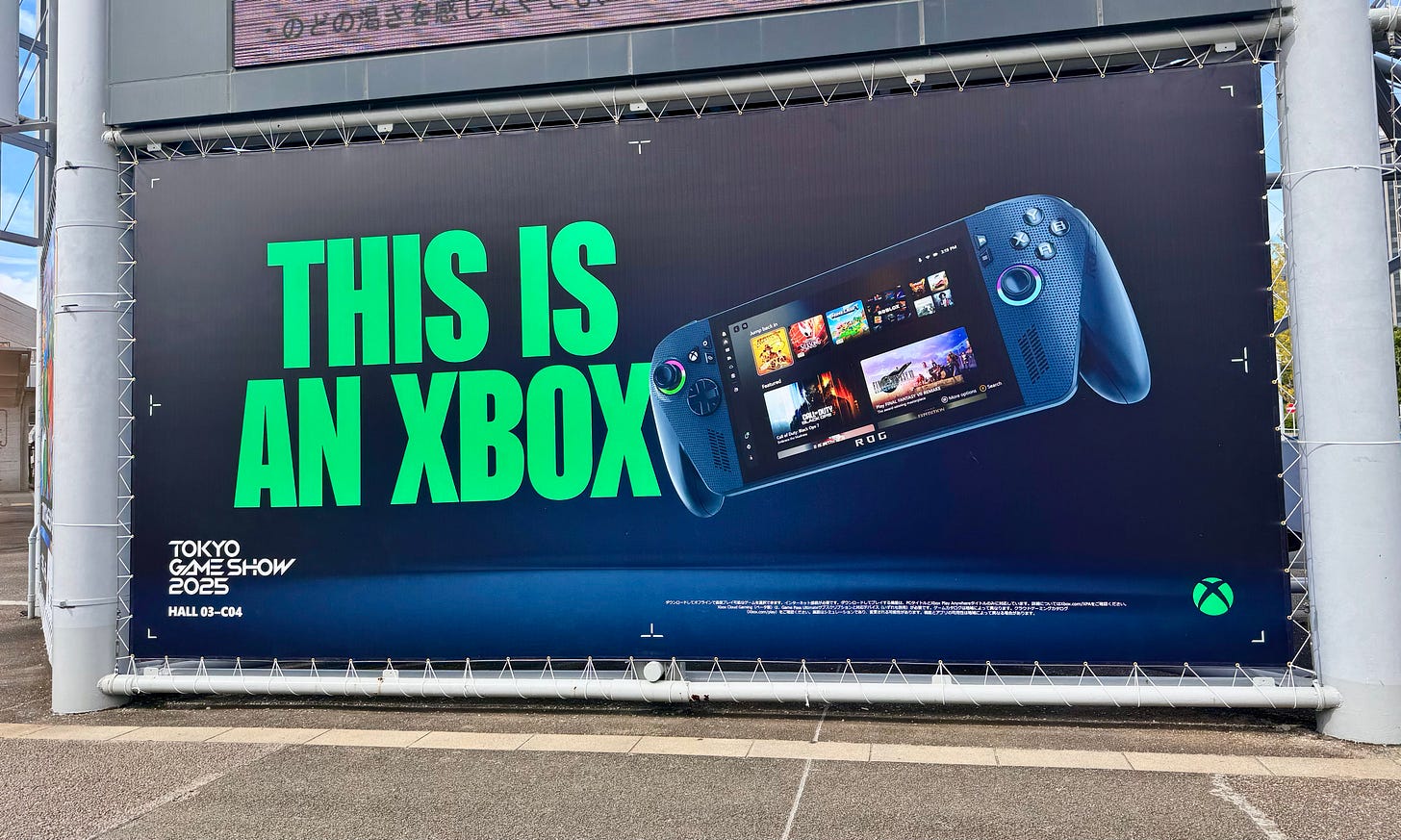Why Your $50M Game Studio Can't Compete With a $4M Japanese Team
Notes from the show floor on shifting power dynamics, AI adoption, and why your $50M game budget might be obsolete.
I just got back from Tokyo Game Show, and the vibe shift is unmistakable. Here are a few observations that matter for anyone building or investing in games.
Western studios are losing their edge
Five years ago, every major Asian publisher was writing checks to Western studios. American and European developers were the hot commodity - perceived as more experienced, more sophisticated, capable of creating “AAA quality” content that could compete globally.
That era is over.
Now, Asian publishers view the West primarily as a market for their domestic content, not as a source of development talent. And honestly? They’re right to. Most Western studios simply aren’t cost competitive anymore, while it’s become increasingly clear that Asian developers can create content with massive global appeal.
The numbers are shocking. I heard about one C-level executive at a venture-backed US studio pulling down $3M in annual salary. Not equity - cash. Meanwhile, I saw a demo from a team of veteran Japanese developers who had worked at major AAA studios, and they need a total of $4M to reach Early Access. The entire budget for their game - which looks better than most $50M productions - is less than what one Western executive is making in salary.
This isn’t sustainable. And the market is figuring it out.
The one exception: AI-native studios
There’s exactly one area where Western studios still command premium interest from Asian investors: AI-native game development.
The US is still seen as the leader here, primarily because of proximity to OpenAI, and the other frontier model companies. I had multiple conversations with investors and publishers who are genuinely curious about studios at the bleeding edge of exploring AI-native gameplay - not just using AI as a production tool, but building games where AI is fundamental to the core experience.
This makes sense. The infrastructure, talent, and experimentation happening around AI is still concentrated in the US. But it’s a narrow window of advantage, and it won’t last forever.
Anime has won
The global takeover of anime is accelerating faster than most people in the West realize. The US writers’ strike created massive content holes that international IP rushed to fill. Global platforms like Netflix have brought anime into living rooms everywhere, and it’s found huge traction, especially with younger audiences.
But here’s what’s really important: anime isn’t just something people watch anymore - it’s foundational IP spinning off into live action adaptations, gaming, merchandise, everything. The entire entertainment stack is being rebuilt around these properties.
If you’re a Western studio or investor and you’re not thinking about how anime-style content and IP fits into your strategy, you’re already behind.
AI adoption without the angst
One of the most striking contrasts I noticed: prominent anime creatives are using AI production tools enthusiastically and openly, without the existential fear and political baggage I see in the US. There’s much less worry about audience rejection or being “canceled” for using AI.
My theory on why this is: AI is less politically and culturally charged in Japan because the billionaires aren’t as visible and inequality isn’t as stark. When you don’t have a Zuckerberg or an Altman or a Musk dominating the cultural conversation and personifying inequality, the technology itself doesn’t become as loaded with political meaning.
It’s just a tool. And people are using it to make things.
Microsoft’s handheld gambit
Microsoft had giant billboards all over TGS showing their new ROG-branded Xbox handheld with one simple message: “THIS IS AN XBOX.”
It’s a clear statement of intent - the Xbox platform is no longer defined by a box under your TV. Cloud, mobile, PC, handheld - it’s all Xbox now.
The device itself looks compelling. But here’s the question that matters: in a world where Sony dominates Japan, Nintendo owns portable gaming, and Steam Deck has won over PC gamers, who exactly is this for?
And more importantly, at a premium price point, will the bet that “Xbox everywhere” is more valuable than “Xbox as a place” actually pay off?
When your platform is every screen, you control none of them. That’s either the future of gaming, or it’s a strategic retreat dressed up as innovation. We’ll find out which.
The bottom line: Power in the games industry is shifting East, cost structures in the West are broken, and AI is being adopted much faster in markets where it hasn’t become a culture war issue. The studios and investors who understand these shifts will thrive. Everyone else is in for a rough few years.
If you’re working on something that reflects these new realities, I’d love to hear from you.


